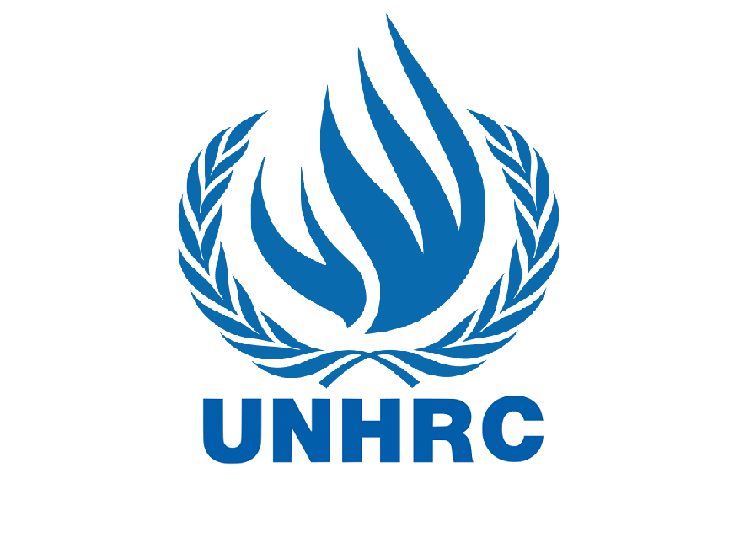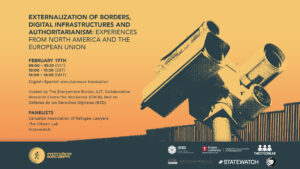Submission to the UN Special Rapporteur on Violence Against Women, its Causes, and Consequences

The Citizen Lab, with considerable input from the Canadian Internet Policy and Public Interest Clinic and other contributors, has penned a submission to the United Nations Special Rapporteur on violence against women, its causes, and consequences, Dr. Dubravka Šimonović, in preparation for her report to the Human Rights Council in June 2018. The submission reviews some of the barriers to addressing problems of technology-facilitated violence, abuse, and harassment against women and girls; contextualizes the complicated environment within which online harassment operates; and suggests recommendations to address, mitigate, and remedy these issues.
While women and girls are disproportionately targeted for online harassment in general, they also face unique gender-specific threats. These threats include, but are not limited to: cyber stalking, non-consensual sharing of intimate photos or videos (“revenge porn”), harassment, hacking, denial-of-service attacks, gender-based slurs, publication of private personal information (“doxing”), impersonation, extortion, rape and death threats, electronically-enabled trafficking, and sexual exploitation of minors. In addition to gender-specific discrimination, other factors—such as gender expression, sexual orientation, disability, race, ethnicity, Indigenous status, age, and religion—compound, exacerbate, and complicate experiences online. At the same time, manifold legal tensions related to identification, jurisdiction, enforcement, competing rights, and the role of intermediaries are inherent to the digital policymaking arena.
Given this complex tapestry of factors, the submission makes a series of recommendations so that the Special Rapporteur is fully informed about the particular threats to women and girls online and can best advise states and various UN bodies to act appropriately. The recommendations are aimed at ensuring that: new legislative powers are necessary and evidence-based; encryption and anonymity tools are recognized as essential in protecting women and girls online; states understand the complex role of intermediaries in the removal of harmful content and identification of users; the urgent issue of commercial spyware and “stalkerware” receives attention at the international and national stages; and education is deemed essential for empowering the legal community, law enforcement, and frontline workers to better address issues of online harassment.
The full list of recommendations to the Special Rapporteur can be found below.
Recommendations
- The Special Rapporteur on violence against women should collaborate with the Special Rapporteur on the promotion and protection of the right to freedom of opinion and expression and the Special Rapporteur on the right to privacy when formulating policy responses
- States should ensure that all new powers conform with the International Principles on the Application of Human Rights to Communications Surveillance (“Necessary & Proportionate Principles”)
- States should adopt legislative obligations for data collection and transparency reporting
- States should modernize existing legislation to ensure that it remains effective and inclusive in light of technological change
- States should protect and encourage the development of technologies—including encryption and anonymity tools—that protect the rights of women and girls online
- States should adopt legal mechanisms to protect the anonymity of complainants in both civil and criminal proceedings
- Mechanisms for states and private litigants to access identification data from Intermediaries should be rights-protective, effective and tailored
- Intermediaries should not be compelled to remove content in the absence of a narrowly tailored and specific court order, issued further to a clearly defined legal prohibition
- All new measures adopted by states to regulate online content removal should conform with the Manila Principles on Intermediary Liability
- Intermediaries engaged in the moderation of online conduct should be encouraged to adopt transparency reporting mechanisms, publish clear and comprehensive content moderation policies, and develop explicit review and appeal processes
- All policy frameworks related to the removal and moderation of online content should account for the global nature of intermediaries
- States should hold manufacturers of commercial spyware accountable and engage legal measures to ensure that these tools are not abused to facilitate surveillance against women and human rights defenders
- States should commit to supporting the development of specialized legal education materials, and clinical resources on issues of technology-facilitated violence, abuse, and harassment
- States should mandate regular, expert-led training for law enforcement on responding to reports of technology-facilitated violence, harassment, and abuse
- States should invest in resources, education and support for frontline anti-violence workers to develop greater technical literacy
- The Special Rapporteur on violence against women should encourage actors in the information and communication technology (ICT) sector to take a leadership role in preventing technology-facilitated violence, harassment, and abuse
The full submission can be found here.
Contributors to this report (in alphabetical order)
Dr. Ronald J. Deibert, Professor of Political Science; Director, The Citizen Lab
Lex Gill, Research Fellow, The Citizen Lab
Tamir Israel, Staff Lawyer, Canadian Internet Policy and Public Interest Clinic (CIPPIC)
Chelsey Legge, Clinic Student, International Human Rights Program (IHRP), University of Toronto
Irene Poetranto, Senior Researcher and Doctoral Student, The Citizen Lab
Amitpal Singh, Research Assistant, The Citizen Lab
Acknowledgements
We would also like to thank Gillian T. Hnatiw (Partner, Lerners LLP), Samer Muscati (Director, International Human Rights Program, University of Toronto), Miles Kenyon (Communications Officer, The Citizen Lab), Sarah McKune (Senior Researcher, The Citizen Lab), Jon Penney (Assistant Professor of Law; Director, Law & Technology Institute, Schulich School of Law), and Maria Xynou (Research and Partnerships Coordinator, Open Observatory of Network Interference (OONI)) for their support in the creation of this report.


